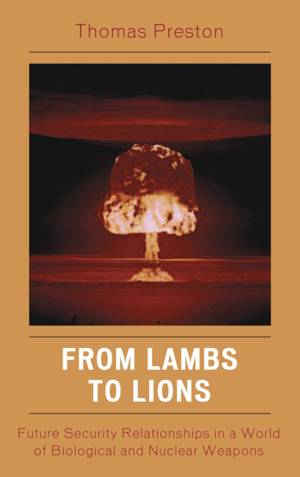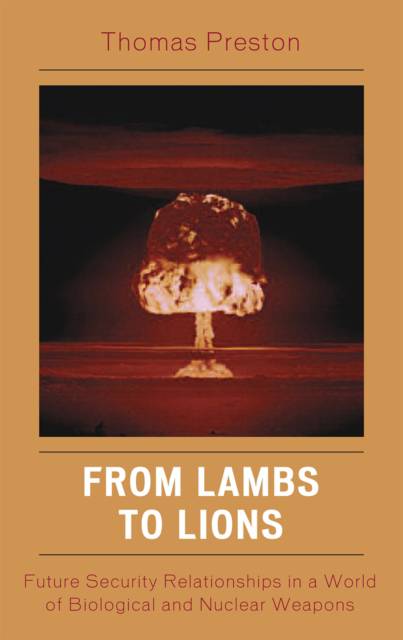
- Afhalen na 1 uur in een winkel met voorraad
- Gratis thuislevering in België vanaf € 30
- Ruim aanbod met 7 miljoen producten
- Afhalen na 1 uur in een winkel met voorraad
- Gratis thuislevering in België vanaf € 30
- Ruim aanbod met 7 miljoen producten
Zoeken
From Lambs to Lions
Future Security Relationships in a World of Biological and Nuclear Weapons
Thomas Preston
Paperback | Engels
€ 85,45
+ 170 punten
Uitvoering
Omschrijving
In From Lambs to Lions, Thomas Preston examines current trends in the proliferation of nuclear and biological weapons capabilities, know-how, and technologies for both state and non-state actors-and then projects these trends over the coming ten to fifteen years to assess how they might impact existing security relationships between states. For answers to questions about security in the face of biological and nuclear weapons proliferation, and for some potentially surprising reassurances, this clear and informative book will be invaluable.
Specificaties
Betrokkenen
- Auteur(s):
- Uitgeverij:
Inhoud
- Aantal bladzijden:
- 450
- Taal:
- Engels
Eigenschappen
- Productcode (EAN):
- 9780742555037
- Verschijningsdatum:
- 16/03/2009
- Uitvoering:
- Paperback
- Formaat:
- Trade paperback (VS)
- Afmetingen:
- 160 mm x 229 mm
- Gewicht:
- 675 g

Alleen bij Standaard Boekhandel
+ 170 punten op je klantenkaart van Standaard Boekhandel
Beoordelingen
We publiceren alleen reviews die voldoen aan de voorwaarden voor reviews. Bekijk onze voorwaarden voor reviews.








